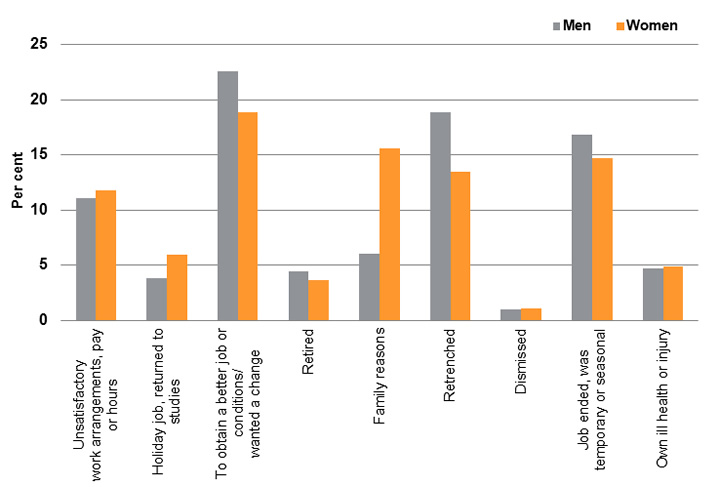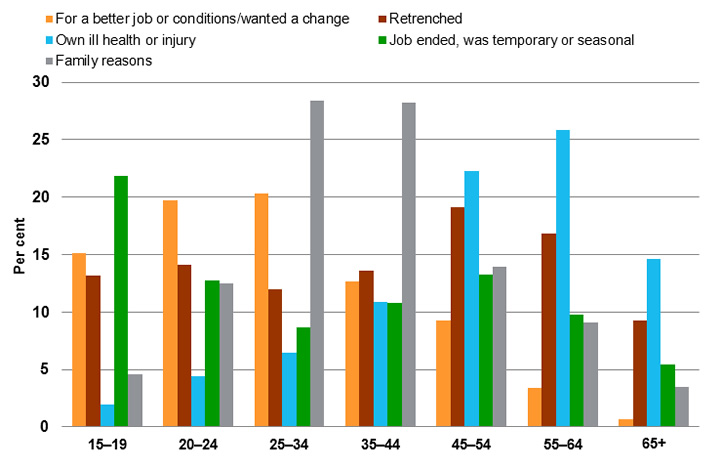Posted 26/10/2017 by Penny Vandenbroek
The Australian Bureau of Statistics (ABS) has released the 2017 estimates from their survey of Participation, job search and mobility. The survey provides information on people who worked at some time in the 12 months ended February 2017 and their experiences of the labour market. People who ceased a job during this period are asked to select their main reason for stopping work from a list of voluntary and involuntary reasons. These reasons can be cross-classified by demographic characteristics, as well as employment characteristics.
While there were differences in the main reason men and women ceased a job, the top reason for both was that they wanted a better job or conditions, or just wanted a change—23% of men and 19% of women. Men were more likely than women to be retrenched—19% compared to 13%; whereas women were much more likely to cite family reasons for leaving a job—16% compared to 6%. Both experienced similar levels of cessation related to temporary or seasonal work ending (17% of men and 15% of women), and their own ill health or injury (5% each). For reasons of data quality, people who ceased their job to start their own/new business have been omitted.
1. Main reason for ceasing last job, by sex, year ending February 2017

Source: Participation, job search and mobility, Feb 2017, cat. no. 6226.0 (Table 10)
Comparing age groups, people in the youngest age group (15 to 19 years) were most likely to cease a job due to its temporary or seasonal nature (22%). Those in the next age group (20 to 24 years) were most likely to cease due to wanting a better job or conditions (20%), or because they were retrenched, made redundant or their employer went out of business (14%). People in age groups 25 to 34 years and 35 to 44 years were most likely to leave a job for family reasons, which encompassed reasons such as marrying, having children, caring for others, holidaying, moving house or having a spouse who was transferred. The main reason people in age groups 45 to 54 years and 55 to 64 years ceased their jobs was due to their own ill health or injury. Note: care should be taken when interpreting figures for the following groups, as relative standard errors of 25—50% apply: people aged 65 plus who wanted a better job or conditions; and people aged 15 to 19 years who ceased due to ill health or injury.
2. Selected main reasons for ceasing last job, by age, year ending February 2017

Source: Participation, job search and mobility, Feb 2017, cat. no. 6226.0 (Customised table).
Cross-classifying people’s reasons for ceasing a job by demographic characteristics can assist in analysing patterns or changes in the labour market. Undertaking a similar type of process using employment characteristics (e.g. job tenure) would also be useful—this will be analysed in a future FlagPost. The ‘Labour mobility’ summary of the ABS release provides some additional information on this theme.
For questions or further assistance please contact the Parliamentary Library Statistics and Mapping Section.